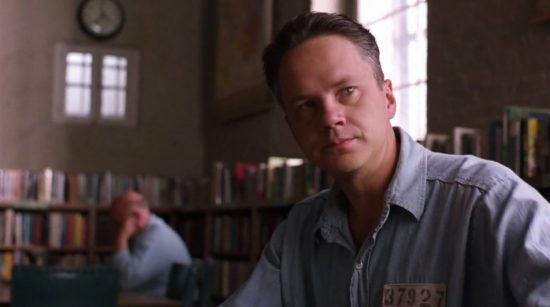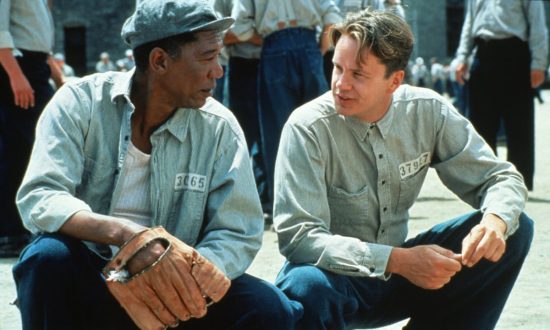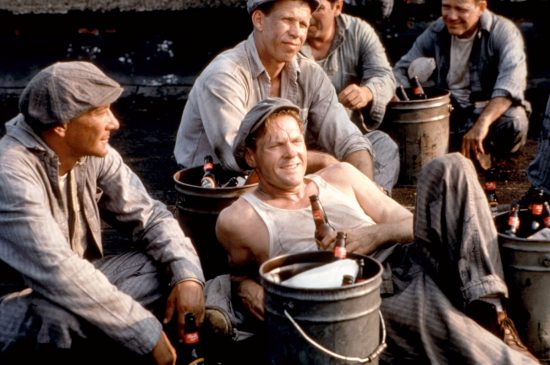Late To The Party: The Shawshank Redemption
Late To The Party is a series of reviews ranging from classical masterpieces to modern-day blockbusters where I look to make my confession for the sin of not having seen them before. I seek absolution from the film universe and hope to never again suffer your disdain for my film faux pas. I am Fredo, in the boat. Hail Mary, full of grace.
This week it’s the turn of the film that was the source of inspiration for this column. I once caught the last 20 minutes of this film and then much to my shame, never found the right time or the inclination to go back and watch it from the start. This week it’s the big one, the IMDB number 1. I have now watched in its entirety for the very first time, The Shawshank Redemption.
For the sake of completeness, The Shawshank Redemption is an adaption of the Stephen King short story ‘Rita Heyworth and Shawshank Redemption’. Directed in 1994 by Frank Darabont, it stars Tim Robbins as Andy Defresne, Morgan Freeman as Ellis Boyd ‘Red’ Redding and boasts an impressive supporting cast including Bob Gunton, Clancy Brown and William Sadler. The film follows the story of Andy, told mainly through the eyes and narration of his prison mate, Red. The film begins in 1949 Maine, where Andy is convicted of murdering his wife and her lover while constantly maintaining his innocence. He is given life imprisonment and sent to Shawshank to carry out his sentence. There he meets and befriends Red, one of the prison’s inmates who can ‘get most things’ for the right price. The film follows Andy’s initial struggle to come to terms with life in Shawshank and how, over the years manages to find the humanity, inner-freedom and hope that sustains him and others during their incarceration.
The velvet tone of Morgan Freeman’s narration wraps a comfort blanket over the whole film and indeed, the audience. There is danger, and terrible things do happen to our protagonist and his friends, but Morgan’s omnipresent voice is there to comfort and assure you everything will be just fine in the end. The narration immediately signals that the film is aiming for your heartstrings and doesn’t care if you know it.
As with many other Stephen King stories and adaptations for cinema and TV, it is all about executing the plot points getting the story told. This may sound redundant and is certainly no bad thing for a film. But it rarely allows its main characters to just breathe and simply be for a moment, without Red’s narration telling us they why they were doing so. There are a few affecting moments where the pace slows, such as the scene on the roof and the playing of the record through the loudspeakers, but even these are functional in their nature. I think this is probably one of the reasons why the film has been the highest-rated movie on IMDB for so long, it does a fantastic job of ticking the boxes and getting the story told.
I am normally a sucker for emotionally exploitative movies. I get duped all too easily by heroic dead dogs, electrocuted Coffeys or even the farting corpse of Swiss Army Man. But during this film, I felt strangely detached. Yes, this has a great deal to do with expectation and familiarity. I have seen this film parodied on TV and referred to countless times by friends as their all-time favourite film, and rightly so. It’s a film that tells a fantastic story with great heart. But it is also a film that feels very much of its time. For a film that takes place over a 20 year period from the 40s to the late 60s, it is a very ‘90s’ film.
At the time of release, America had just come to the end of a long run of Republican rule and was entering what many thought to be a more hopeful and liberal period with the election of the Democrat candidate, President Clinton (make your own comment there). The LA riots of 1992 had been and gone, there were no smartphones to capture and share all too frequent incidents of beatings and murder at the hands of the police. No lingering talk of Black Lives Matter or a national movement for equality. Did 90s America not believe this was required and LA was just an anomaly or a blip? In this context, there is a certain detachment or alienation to be experienced now watching this film in 2020. The prison guards, although cruel and violent, are not to my recollection seen to be racist or use racist language. This does not ring true in an America that was yet to go through the pain of the civil rights movement. There is no mention of race by the inmates, no self-enforced segregation. I appreciate this is set in Maine and not in a red state, but surely even prisons in Maine weren’t the bastions of tolerance and racial equality then or even now? It is this naivety that contributed to my removal from the emotion of the film.
The performances from the cast are good, but not great. Clancy Brown is as always, good value as the vindictive and violent guard, Captain Hadley. William Sadler is very amusing and energetic as Heywood, the unpredictable member of Red’s gang of inmates. And Morgan Freeman really nails the ‘Protagonist’s Best Friend’ corner of the market, following his turns in Driving Miss Daisy, Robin Hood: Prince Of Thieves and Unforgiven. Tim Robbins gives a career-defining performance as Andy, showing enough everyman and humility to draw our compassion but maintaining a detachment that suggests the majority of his life is being lived internally. However, I can’t help but wonder what may have been, were Tom Hanks not committed to Forrest Gump at this point and was in a position to accept Frank Darabont’s offer of the lead role in this film. That would have been quite something to see.
There are regular Stephen King tropes on view such as the hypocritical scripture-quoting villain (Warden Norton) and the bullying physical threat of the secondary villain (Captain Hadley) seen so many times before in King’s works. From IT (Henry Bowers), The Outsider (Jack Hoskins) to Christine (Buddy Repperton). There is also the question of the gang of inmates referred to as ‘The Sisters’, who are basically psychotic rapists. At one point Red tells Andy that they are not homosexuals but psychopaths. Ok fine, but the uncomfortable association is there and I was reminded of the recently viewed Hearts In Atlantis. Anthony Hopkins character shames the local bully (Harry Doolin) because he secretly wears his mother’s clothes and suggests this is why he bullies people. That scene also felt uncomfortable to watch and was by no means as old as Shawshank. I’m not accusing King of homophobia, but it is fair to say in the past he has relied on uncomfortable stereotypes such as this.
Watching The Shawshank Redemption was a strange and somewhat empty experience for me. In part, it had a great deal of the humanity and magic many of my friends have told me about at dinner parties or on Twitter. But at the same time, it was never going to live up to the hyperbole. It was a film I enjoyed, but now having seen it, I can’t see myself returning for repeated viewings. Having finally pulled the curtain back on this wizard, Shawshank has revealed itself as mortal and flawed. Not entirely what I hoped it would be.












